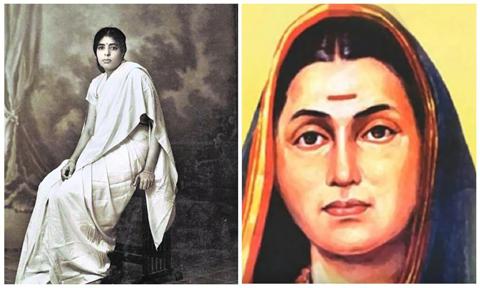
6 Indian Women Who Changed The Way We Live Today

It’s no secret that the world would be a much different place without the contribution of women across various fields. This world would have been devoid of amenities we now take for granted, like WiFi or GPS, and would be behind times when it comes to the rights of the oppressed.
Indian women have been instrumental in bringing about revolutionary changes to the world we live in now, from female freedom fighters, like Rani Laxmi Bai and Sarojini Naidu, to modern Indian women who have brought India’s name to the global platform, like Kalpana Chawla or Indra Nooyi.
There have been many Indian women who have pioneered fields that have changed the way we live today and we decided to take a look back at some of the lesser-known names to remember this Women’s Day. So without further ado, here are all the women who paved the way for a better world for Indians today…

Janaki Ammal
Janaki Ammal
At a time when women were discouraged from educating themselves, let alone choosing a subject like science as their field of study, Janaki Ammal became one of the first Indian botanists in the 1920s. Ammal studied to become an expert in cytogenetics and eventually created a high-yielding strain of sugarcane, which was previously being imported from Papua New Guinea, that would change the agricultural landscape of India forever. In 1977, the botanist also became the first female scientist to win the Padma Shri Award and went on to become the director general of the Botanical Survey of India.

Pandita Ramabai
Pandita Ramabai
Born to parents who were Sanskrit scholars, education was always important for Pandita Ramabai. She eventually became the first woman to receive the title of Pandita from the University of Calcutta for her exemplary grasp of Sanskrit. Throughout her life, she worked for the cause of women across religions and castes. During the 1880s, Ramabai converted to Christianity, citing the ill regard for women in orthodox Hinduism as one of the reasons for her conversion. Her book, The High-Caste Hindu Woman exposed the darkest sides of the life of Hindu women in British India, including child brides and child widows. She was also a relentless advocate for the appointment of women as school inspectors and the admission of female students to medical schools in the country. She also raised funds to create a home for child widows and orphans in the face of oppression from society.

Gaidinliu
Gaidinliu
Popularly known as Rani Gaidinliu, this Naga spiritual leader is one of the lesser-known names in the freedom fight movement of India. She joined the Heraka movement, which was a religious reform movement, at the age of 13 and worked towards reviving Naga tribal traditions. As a teenager, she managed to mobilise armed rebellions against British rule and continued to work for the betterment of tribal people in the area until she was incarcerated. After India got its freedom from the colonial rulers, she was freed and went on to receive a Padma Bhushan for her continued efforts to improve the conditions of tribal people in the Northeastern region of the country.

Savitribai Phule
Savitribai Phule
As feminists in India, Savitribai Phule is a name that none of us should ever forget. She was a pioneer of India’s feminist movement and had a vital role in improving the state of women’s rights in the country. She, along with her husband, worked towards abolishing discrimination and unfair treatment of people based on caste and gender. She was a strong advocate for widow remarriage and worked staunchly to abolish child marriage in the country.

A Lalitha
Ayyalasomayajula Lalitha
Even in 2023, STEM fields still continue to be largely male-dominated areas. Imagine the state of affairs in the early 20th century, a time when fields like medicine and engineering were only pursued by upper-caste men. Ayyalasomayajula Lalitha defied norms by becoming the first female engineer in India. Not only was she the first female student in an all-male batch at the College of Engineering, Guindy, in 1937, but she also became a pioneer of equality, education, and women in STEM in India. She was also instrumental in creating the Bhakra Nangal Dam, which is India’s largest dam.

Tarabai Shinde
Tarabai Shinde
An associate of Savitribai Phule, Tarabai Shinde was a feminist activist and writer in 19th century India who created the first modern Indian feminist text with her Stri Purush Tulna. The text was immediately controversial as it challenged revered Hindu religious scriptures that perpetuated inequality between the two genders.
- Quick links
- International Women's Day









